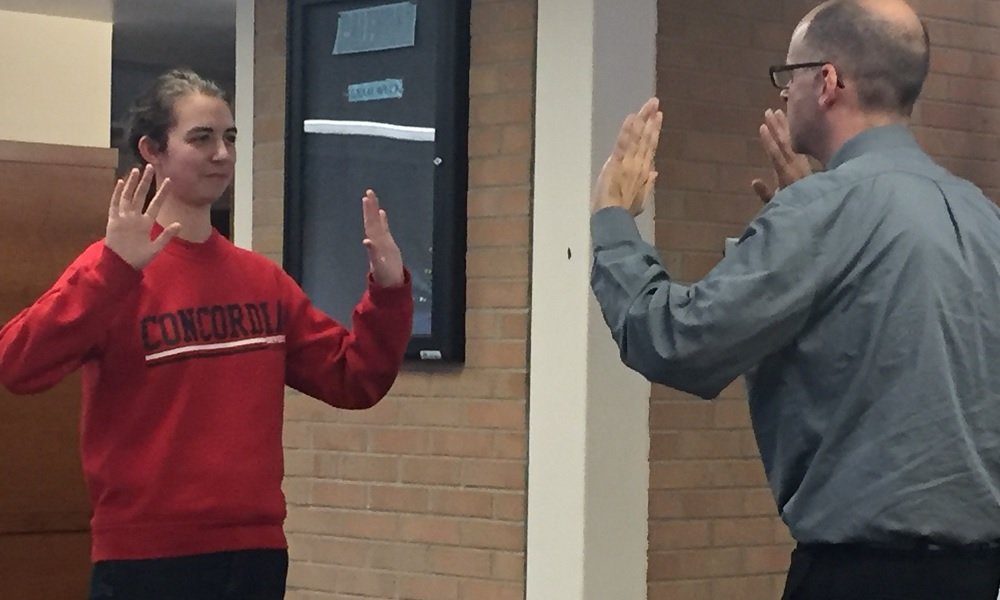
As part of the Family Life program, students learn how to teach social skills. In a unique and innovative day of instruction, the School of Education Family Life program hosted an improv workshop.
As part of the Family Life program, students learn how to teach social skills. In a unique and innovative day of instruction, the School of Education Family Life program hosted an improv workshop. Improv…as in, the awkward, acting, improvisation shows you’ve perhaps seen at a comedy club or T.V. Though the connection to social skill development and improv may not seem related at first, instructor Timothy Larabee quickly shows how they are related.
Larabee uses play to teach appropriate social skills in schools. More specifically, he uses applied improvisation which is the application of theater improvisation to everyday skills. Improv can help students struggling with social interaction engage in appropriate social settings. The constructed setting provides a space for students to take silly safe risks. With practice, social skills develop and confidence levels improve.
For a more personal account of the workshop, Erin Kisch, student in the Family Life Program, wrote about her experience of the workshop:
As we prepared to start the improv activities, I began to feel nervous about participating. There was a nagging in the back of my mind. Would I be able to remember all the rules to the game? Would my friends think I was funny? Every time I joined in an activity, I was taking a risk. However, the game facilitator was sure to acknowledge everyone’s effort and encourage participation.
Additionally, the other students and I had to have a mutual trust in each other. If one of my ideas ran into a dead end, I had to trust that someone would jump in and continue the game. This trust created an atmosphere of teamwork. Nobody’s ideas were thrown out as silly or useless. Each person’s addition was accepted as valuable.
If one of my ideas ran into a dead end, I had to trust that someone would jump in and continue the game. This trust created an atmosphere of teamwork.
Both the facilitator’s acknowledgement and my fellow students’ acceptance worked together to build my self-confidence. When someone gave recognition to my improvisation or when someone else was able to build off my idea, I felt like I was an important part of the team.
Overall, I learned that children who have behavior difficulties or struggle with social interactions can benefit from learning these same lessons. By practicing improvisation activities in schools, students can learn to take safe risks, trust their teacher and fellow students, and build their self esteem.
—
If this story has inspired you, why not explore how you can help further Concordia's mission through giving.